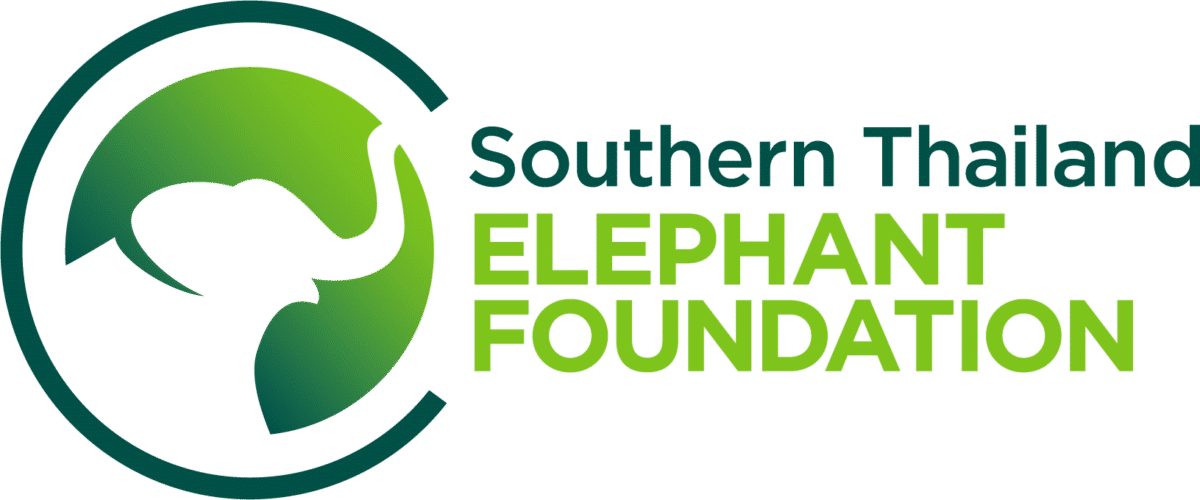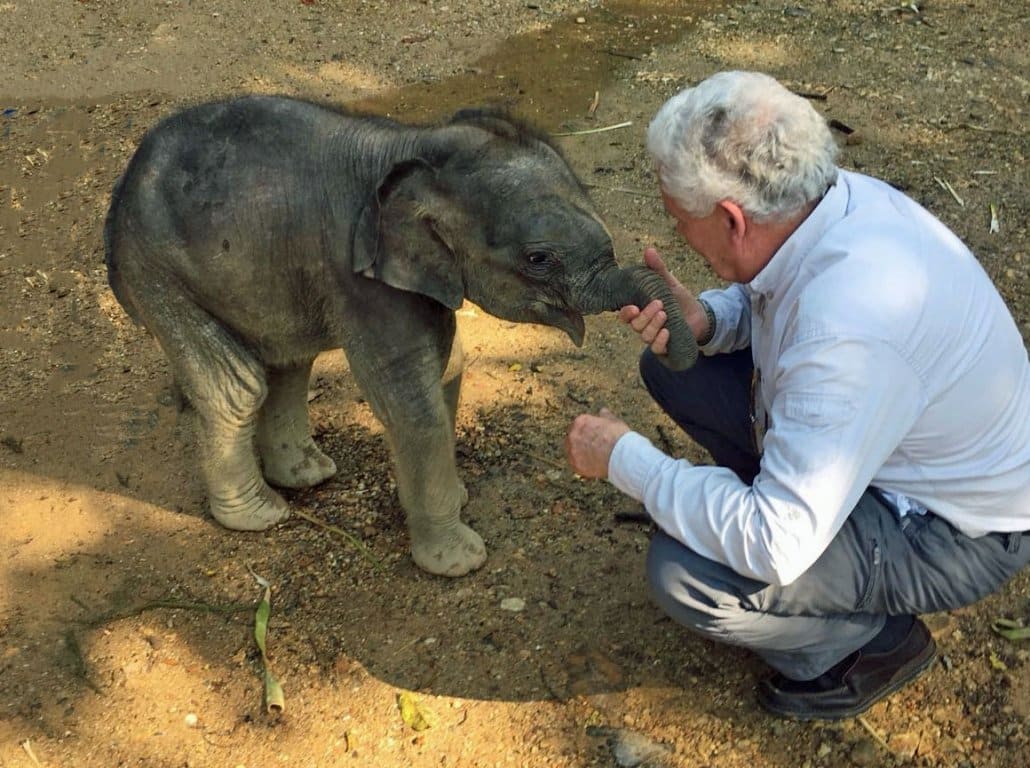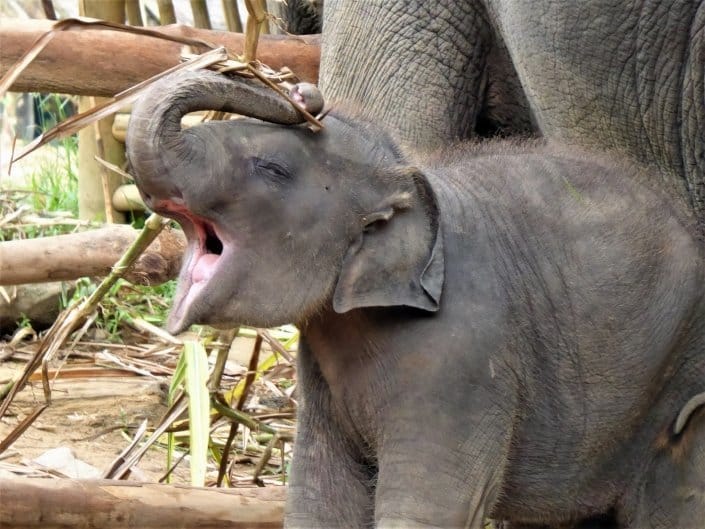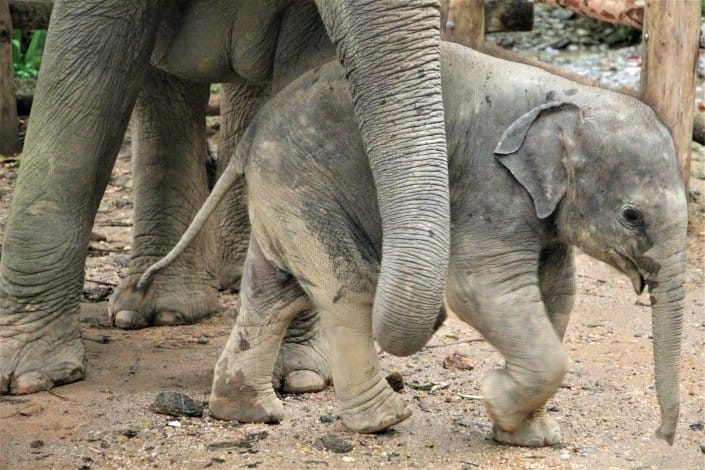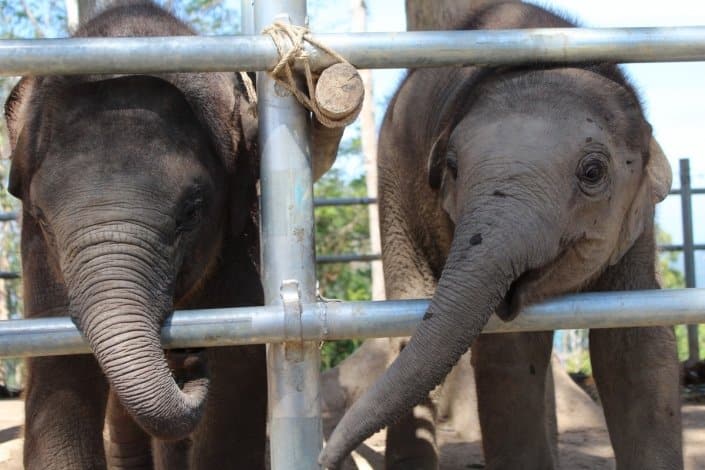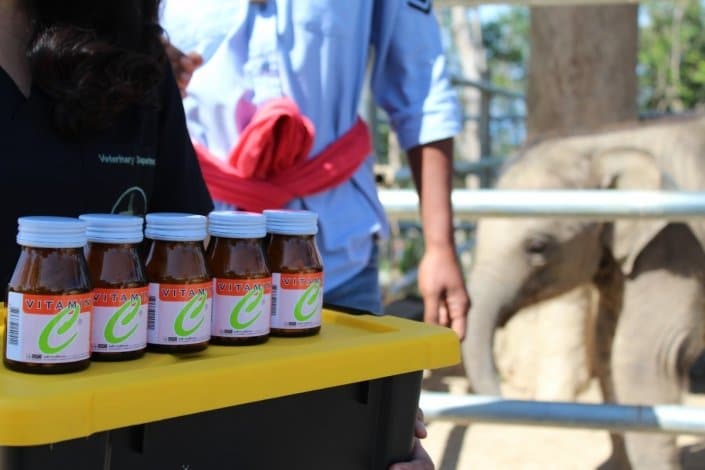Elephant Endotheliotropic Herpesvirus – the Killer Virus
STEF Chairman, Dr Andrew Higgins, with the baby Tonkao who died from EEHV last year, aged 1
Asian elephants, already an endangered species, are facing an increasing threat to their existence because of a herpes virus that kills young elephants. Known as elephant endotheliotropic herpesvirus (EEHV), the first fatal case of this disease was identified at the National Zoo in Washington, DC, in 1995 [1], and soon afterwards the first case was reported in Asia [2]. Since then, more than 100 young Asian elephants, both captive and wild, are known to have died from it, and this is possibly just the tip of the iceberg. In December last year, two young elephants at the New York Zoo died within days of each other from EEHV (see this report in the Independent)
This rapid-onset, acute haemorrhagic disease primarily affects Asian elephants under the age of 10 years, and particularly those between one and four years. EEHV infects the microvascular endothelial cells – particularly of the heart, liver and tongue – leading to critical haemorrhages and often sudden death in about 80% of infected juvenile elephants. Symptoms can include loss of appetite, cyanosis of the tongue (that turns bluish in colour), bloodshot eyes, swelling in the head and neck, lethargy and mouth ulcers.
In spite of numerous studies (including one published in Nature in 2020 [3] which confirmed that EEHV is transmitted via saliva and intestinal excretion) there is currently no vaccine available for EEHV. Early detection followed by urgent treatment with anti-viral drugs and massive rehydration offer the best chance of a successful outcome; an untreated elephant is very unlikely to survive.
Bearing in mind that female elephants produce only two or three infants in their lifetime, EEHV poses a major threat to Asian elephants, so work continues to develop effective vaccines. Meanwhile, owners and veterinarians in Thailand remain vigilant, particularly during the months of December, January and February, when the weather pattern changes and so does the diet, resulting in an increase prevalence of the disease. STEF’s veterinary officer, Dr Aon, is already analysing blood samples from young elephants in Phang Nga and Phuket Provinces to check for the presence of the virus, and has also been supplying Vitamin C, free of charge, to these needy elephants in an attempt to boost their immune systems.
The STEF Veterinary Centre at Khok Kloi provides all of its veterinary services free to elephant owners in the region, but we urgently need funds to pay for the drugs. You can help us by becoming a Medicine Angel and, for just £20 a month, cover the costs of treating one elephant. Please help us to save an elephant today!
If you’d prefer to donate a different amount, please go to our Donate page.
References:
[1] https://en.wikipedia.org/wiki/Elephant_endotheliotropic_herpesvirus
[2] https://virologyj.biomedcentral.com/articles/10.1186/s12985-019-1142-8
[3] https://www.nature.com/articles/s41598-020-68413-4
[Click on the photos below to enlarge]
